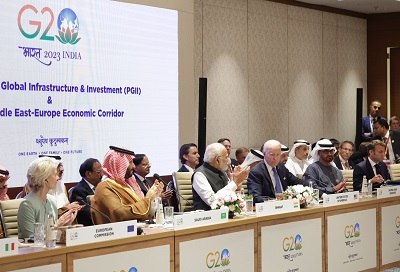
New Delhi, (Samajweekly) Despite euphoria over the consensus achieved on the Delhi Declaration, mainly on the language pertaining to the Ukraine conflict, the wordings are a significant climb down from wordings used in Bali Declaration.
The Delhi Declaration refers to “war in Ukraine” and not “war against Ukraine”, in a significant shift in language from the Bali Declaration last year.
It also hints at a climb down by G7 nations and European Union over language from Bali.
In another watering down from its earlier stand, the Delhi Declaration also acknowledged that, “While the G20 is not the platform to resolve geopolitical and security issues, we acknowledge that these issues can have significant consequences for the global economy.”
On Friday, while replying to a question on whether the Ukraine conflict could derail the G20 summit, the Indian Sherpa Amitabh Kant had said: “G20 is a forum for discussing issues of growth and development. However last in Bali (G20 summit) it was felt that war and conflict impact economy and growth so it was discussed.”
Meanwhile, the climb down is evident from these passages of the Delhi Declaration.
“Concerning the war in Ukraine, while recalling the discussion in Bali, we reiterated our national positions and resolutions adopted at the UN Security Council and the UN General Assembly and underscored that all states must act in a manner consistent with the purposes and principles of the UN Charter in its entirety,” the final Delhi outcome document reads.
“We highlighted the human suffering and negative added impacts of the war in Ukraine with regard to global food and energy security, supply chains, macro-financial stability, inflation and growth, which has complicated the policy environment for countries, especially developing and least developed countries which are still recovering from the COVID-19 pandemic and the economic disruption which has derailed progress towards the SDGs.”









